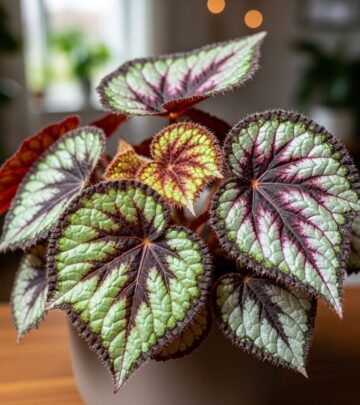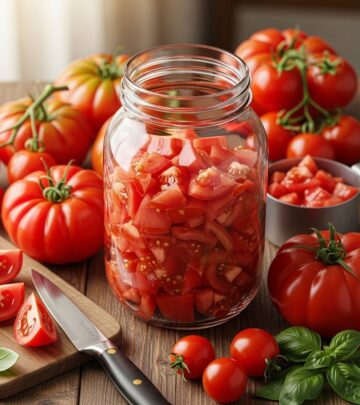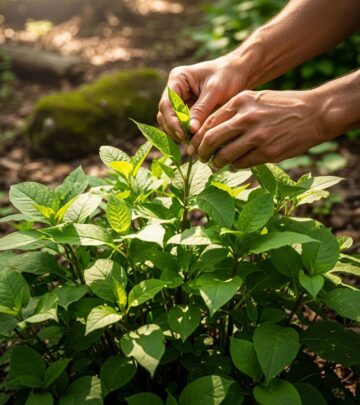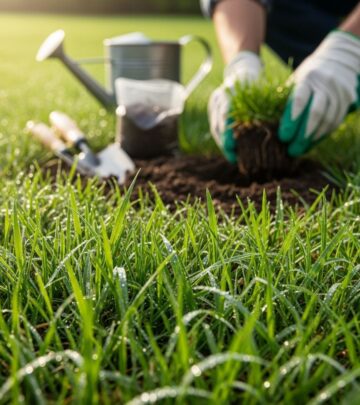Coffee Grounds For Orchids: Risks, Benefits, And Expert Tips
Learn the science behind using coffee grounds with orchids—and discover safer ways to nourish your prized blooms.
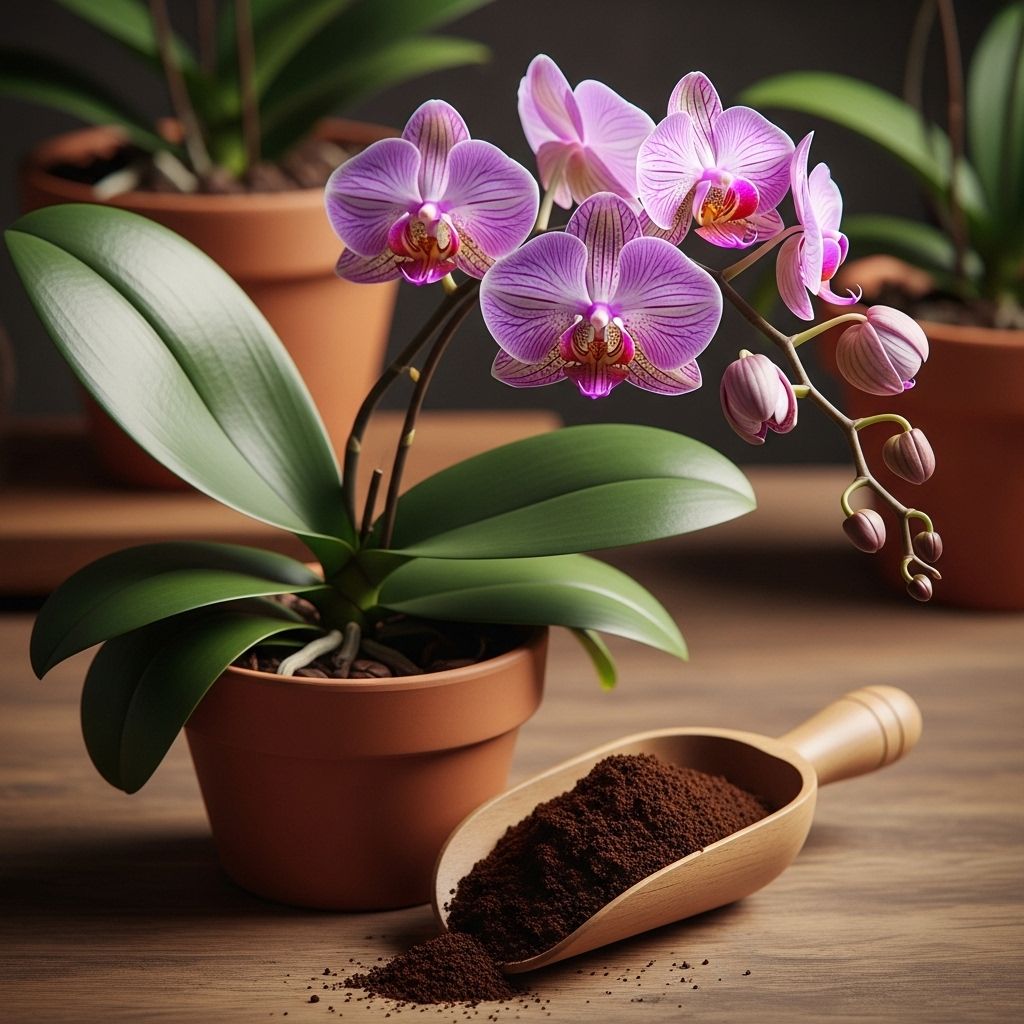
Image: HearthJunction Design Team
Are Coffee Grounds Good or Bad for Orchids?
For many gardeners, the idea of reusing coffee grounds as a natural fertilizer is an enticing one. Coffee shops and home gardeners often promote spent grounds as an eco-friendly soil amendment, full of nutrients and beneficial organic matter. But when it comes to orchids—a group of plants known for their unique growing requirements—the story isn’t so straightforward. This article explores whether coffee grounds are suitable for your orchids, the risks involved, and the safer alternatives you should use to keep your blooms healthy.
Table of Contents
- The Short Answer
- Why Gardeners Love Coffee Grounds
- Why Orchids Are Different
- The Risks of Using Coffee Grounds on Orchids
- The Exception: Terrestrial Orchids
- Best Practices and Alternatives for Orchid Fertilizing
- Conclusion: Save the Coffee Grounds for Other Plants
- Frequently Asked Questions (FAQs)
The Short Answer
The simple answer is: For most orchids, coffee grounds are not a suitable fertilizer or soil amendment. While coffee grounds offer nutrients, the vast majority of orchids grown by home gardeners are epiphytes—they don’t grow in soil, but rather on bark or other chunky mediums that don’t allow coffee grounds to break down in a productive way. Not only do the nutrients in the grounds remain locked away and inaccessible, but their addition can create a dangerous environment for orchid roots, increasing the risk of rapid bark decomposition and root rot. The exception is for terrestrial orchids, which do grow in soil and may benefit from composted grounds used appropriately. For all other types, it’s best to avoid coffee grounds in your orchid pots.
Why Gardeners Love Coffee Grounds
Coffee grounds have been championed in the gardening world for several reasons:
- Rich Nutrient Content: Spent coffee grounds contain nitrogen, potassium, phosphorus, calcium, magnesium, and other trace minerals beneficial to plant growth.
- Organic Matter: They help build soil structure when composted, improving water retention and aeration in the garden.
- Potential for Detoxification: Some studies suggest coffee grounds can help bind and remove toxic metals from soil.
- Waste Reduction: Using coffee grounds in the garden is a sustainable way to recycle kitchen waste.
Composted coffee grounds can be an excellent addition to vegetable gardens, lawns, and some houseplants when used in moderation and incorporated into the soil properly.
Why Orchids Are Different
To understand why coffee grounds aren’t generally recommended for orchids, it’s important to grasp their unique growing needs:
- Most orchids are epiphytes. This means they naturally grow on trees in the wild, with roots exposed to air and rain—never packed in dense soil or fine organic matter.
- Orchid potting media is very different from regular soil. It typically consists of bark chunks, sphagnum moss, perlite, and other airy, coarse materials. This setup allows maximum airflow and rapid drainage, both crucial for orchid root health.
- Orchid roots are highly sensitive to excess moisture and organic breakdown. Because orchid bark already decomposes over time, adding fine organic materials like coffee grounds accelerates this process, leading to compaction, reduced airflow, and root suffocation.
Table: Why Orchids Don’t Respond Like Other Plants to Coffee Grounds
| Aspect | Orchids | Other Garden Plants |
|---|---|---|
| Root Type | Epiphytic (mostly) | Terrestrial |
| Preferred Media | Chunky bark/moss, high air flow | Soil, higher organic content |
| Response to Fine Organic Matter | Root rot risk, poor aeration | Enhanced soil structure (when composted) |
| Coffee Ground Breakdown | Very slow, nutrients trapped | Breaks down, releases nutrients |
The Risks of Using Coffee Grounds on Orchids
Although coffee grounds contain nutrients that could be beneficial, their structure and the way they decompose present real dangers to orchid health:
- Accelerated Bark Decomposition: The addition of coffee grounds can speed up the decay of bark-based potting mixes, filling air spaces with fine particles and depriving roots of oxygen.
- Root Rot: Suffocated by decomposing material, orchid roots become waterlogged and vulnerable to rot—one of the leading causes of orchid death in home settings.
- Blocked Nutrient Release: In well-aerated orchid media, coffee grounds do not fully decompose, leaving nutrients inaccessible to the plant.
- pH Imbalance: The acidic nature of fresh coffee grounds can alter the delicate balance orchids require, though spent grounds are less acidic than you might think after brewing.
In summary, the risks far outweigh any potential benefits for most orchids. If you’ve already mixed coffee grounds into your orchid’s pot, consider repotting into fresh, clean bark to rescue your plant from possible root rot.
The Exception: Terrestrial Orchids
There is one key exception to this rule: terrestrial orchids. These types of orchids grow in regular soil, much like your average houseplant, making them more receptive to composted organic matter added to their substrate.
- If you grow hardy terrestrial varieties such as Bletilla or Calanthe, composted (never fresh) coffee grounds may be safely added to the soil as part of a balanced organic compost.
- Even so, moderation is crucial. Too much coffee, especially if not well composted, can still cause compaction or disrupt soil structure.
For most people, however, these terrestrial types represent only a small fraction of home orchid collections, which are dominated by epiphytes like Phalaenopsis, Cattleya, and Dendrobium.
Should You Compost Coffee Grounds for Orchids?
While direct application is not recommended for most orchids, it’s perfectly safe—and beneficial—to compost coffee grounds alongside other kitchen scraps and garden waste. The finished compost can later be used for terrestrial orchids, vegetables, and non-orchid houseplants.
Best Practices and Alternatives for Orchid Fertilizing
Want to nourish your orchids and support vibrant blooms? Here are safe ways to feed them:
- Use a balanced orchid fertilizer with formulations such as 20-20-20 or one designed specifically for orchids. These are water-soluble and less likely to cause nutrient burn or root damage.
- Fertilize lightly and infrequently. Most orchids thrive on weak fertilizer solutions applied once a month—less during dormant periods.
- Flush pots occasionally with plain water to prevent salt buildup.
- Repot every 1-2 years with fresh bark or moss to maintain excellent drainage and airflow.
Table: Safe Fertilizer Alternatives for Orchids
| Fertilizer Type | Best For | How to Use |
|---|---|---|
| Commercial Orchid Fertilizer | All orchids | Mix at 1/4-1/2 strength monthly |
| Fish Emulsion | Terrestrial orchids (occasionally) | Apply diluted; avoid frequent use |
| Composted Manure | Terrestrial orchids, vegetables | Mix into potting soil before planting |
| Finished Compost | Terrestrial orchids, garden beds | Work lightly into topsoil |
Conclusion: Save the Coffee Grounds for Other Plants
Coffee grounds do have their place in sustainable gardening—but for most orchids, they create more risks than rewards. Their tendency to accelerate bark breakdown, reduce airflow, and contribute to root rot make them a poor choice for the uniquely airy, chunky environment orchids demand. If you want to recycle your spent coffee, add it to the compost pile or use it in the vegetable garden—just skip the orchid pot. For healthy, thriving orchids, stick to reputable orchid fertilizers and prioritize maintaining fresh, airy potting media above all else.
Frequently Asked Questions (FAQs)
Q: Can I add coffee grounds directly to any orchid?
A: No, direct addition of coffee grounds is not recommended for most orchids, as it can cause root rot and unhealthy conditions in the potting medium. Only some terrestrial orchids may tolerate well-composted grounds.
Q: Are coffee grounds acidic, and will this harm orchids?
A: Spent coffee grounds are far less acidic than fresh ones, but their overall impact on orchid media is still negative due to compaction and decomposition risk, rather than pH alone.
Q: If I already added coffee grounds to my orchid, what should I do?
A: Gently remove your orchid, discard the contaminated medium, and repot using fresh, chunky bark or moss. Inspect roots for signs of rot and trim as needed before repotting.
Q: Is composting coffee grounds safe for all my plants?
A: When properly composted, coffee grounds can be a great addition to most garden beds and with some terrestrial houseplants. Avoid direct contact with seedlings or using them as a thick mulch, as this can smother young plants and compact the soil.
Q: What’s the best routine for fertilizing orchids?
A: Use a diluted, balanced fertilizer specially made for orchids once a month during the growing season, and always flush the medium with plain water occasionally to avoid salt buildup. Regular repotting is equally vital for long-term orchid health.
References
Read full bio of Shinta







